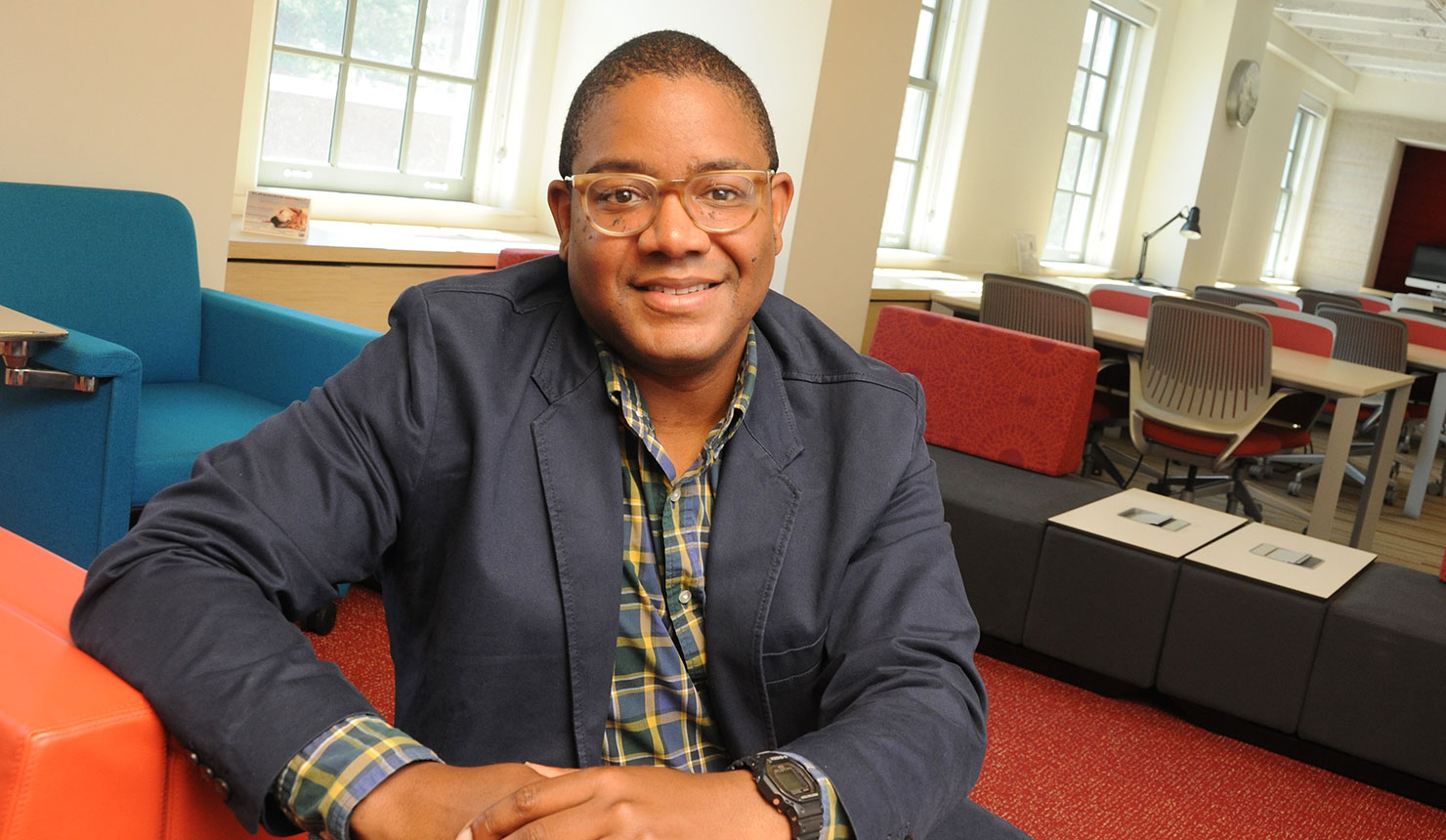
When Bill Eidtson, EdD, Geisel’s director of learning support and accessibility services, talks about his interest in education, the conversation is punctuated with lively observations on educational technology and satire, which on the surface appear to be unrelated.
But Eidtson believes satire, such as that embraced on Comedy Central’s talk/news satire television program The Daily Show, creates a learning environment enabling people to sharpen their critical thinking skills—a subject he fully explored in his dissertation and continues exploring.
“My research considered how shows such as The Daily Show use humor and satire to expose logical flaws and half-truths that politicians and pundits routinely use to further erroneous arguments and policies,” Eidtson says. “I basically wanted to know what satirical news programs could teach us about how to think critically and accurately in order to detect nonsense or falsehoods. Considering our current national conversation, I think the research was pretty prescient!”
Fresh out of college with a degree in sociology, Eidtson tried his hand at teaching: as a substitute teacher in his hometown high school in Florida, then teaching special education in a poor, rural high school, where he developed a special education curriculum incorporating media and technology.
“There was a glaring contradiction among my students—they were avid users of media technologies, but they were always passive consumers. I wanted them to use new media as a form of creative self-expression and learning,” he explains. “So instead of watching network television shows, we made our own shows about math and science. Instead of listening to commercial hip-hop, we made our own music about US history and social studies topics. Students couldn’t wait to work on their assignments and the stuff they created was remarkable.”
Invigorated by this transformative experience, Eidtson pursued further training, and after a few detours—producing documentaries, working for a nonprofit organization that helped teachers, and underachieving students, use media in the classroom to achieve success—he simultaneously earned a doctorate in education while working as director of faculty development at New York University’s College of Dentistry (NYUCD).
Focused on helping faculty to become more effective teachers in both the classroom and clinic, Eidtson developed and directed NYUCD’s teaching academy. “The academy worked with our brightest faculty to reaffirm and elevate the importance of pedagogy. We rewarded faculty who strove to be the best teachers, fostered opportunities for faculty to engage in educational research, and really tried to create a ‘buzz’ for teaching throughout our faculty ranks.”
One takeaway from this experience was the realization that understanding the pressures and challenges students face is a key to becoming a better teacher.
At Geisel, Eidtson says, he has come full circle concentrating again on what it takes to become a better student. From high performers to those who are struggling, he is interested in each medical student.
“Part of my job is to make sure they aren’t overwhelmed given the volume and complexity of what medical students are expected to know,” he says. “I have an open-door policy and I make time for every student who stops by. The most important thing I do is to listen. Some students know exactly what they need help with and we work on specific strategies. Other students aren’t sure why things aren’t working, so we try to chip away at the issue and develop a plan. Some just need to vent. My office is the place for all those things.”
One of Eidtson’s goals is to unlock what student success actually means and how it’s measured—scientifically rather than anecdotally.
There is evidence that some popular studying behaviors, such as highlighting text or simply re-reading a passage, don’t have a strong correlation to success on exams, he notes. And he wonders whether success is, or should be, measured solely by how well students perform on exams or how well they do in clinic.
“We really don’t have a good definition of what it means to be a successful medical student,” he muses. “Doing well on standardized tests may predict certain kinds of academic performance, but not necessarily how good a practicing medical professional you will be.”
Captivated by the difficulty of defining success and taking a cue from evidence-based medicine, he is developing a method to gather qualitative data from students in an effort to understand success’s elusive qualities. Part of this project includes explicating what Eidtson describes as the “underground curriculum”—the informal and invisible ways students successfully create their own learning environments, which he believes can help inform the official curriculum.
“I’m continually impressed by the students I meet—what they’ve achieved and accomplished. Every student here can do the work, and I’m here to help them achieve their goals,” Eidtson says. “That’s my belief and I’m sticking to it.”